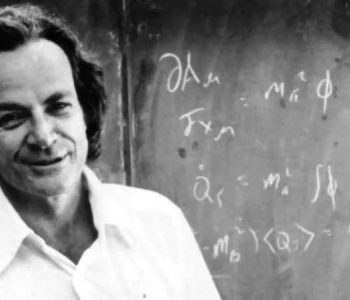 Experimentation
Experimentation
Thomas Edison’s Greatest Invention
A lot of electrons have been taken up (get that) over the past few years revisiting Edison and his true role in the inventions he’s credited with as well as his predatory nature towards competitors. Its a topic I’ve found interesting but let’s set that aside for now as there isn’t definitive evidence one way or the other.
The most interesting aspect here are two things:
- That invention rarely happens in isolation and, in fact, real-time collaboration (vs. building on previous generations) has shown to be the most effective way to stimulate technological advancement — not necessarily commercial but that’s another topic. Bell Labs, Xerox Parc, Dupont are just a few examples as this NYT article points out.
- That there’s very little true research & development in commercial entities any more. Pressure for profits and technological movement not affording the establishment of traditional monopolies (tech monopolies are another matter; see below) don’t afford much of the R. The D is now well entrenched in business due to the rise of rapid commercialization and distribution due to tech and the Internet, respectively.
On the latter, one of the only places we see R&D investment are in the big tech companies. Their profits afford “moonshots”. However the orientation is still to commercialize what they’re pursuing. And that’s not a bad thing, but it doesn’t give the space for pure science projects driven by the improvement of the human condition.
The other modern bastion of this was venture-backed R&D. However, with the pressure to show near-term commercial success, there is little room for 5+ year science projects with unclear commercialization. Unfortunately, that’s led to a perversion of the VC industry in hunting unicorns (more on that another time).
As mentioned in this article, academia is one of the last places for research. However, so much of that is now focused on data gathering vs. fundamental hypothesis testing via experimentation. Thus, we’re in a time of incremental change focused on commercial outcomes. Edison might have fit in nicely.
Thomas alva edison listened with his teeth. The inventor of the phonograph was completely deaf in one ear and could barely hear in the other, the result of a mysterious affliction in his childhood. To appreciate a delicate tune emanating from a music player or piano, he would chomp into the wood and absorb the sound waves into his skull. From there they would pass through the cochlea and into the auditory nerve, which would ferry the melody to his prodigious brain. Edison’s approach to music consumption had curious side effects, beyond the visible bite marks all over his phonographs. He couldn’t hear at the highest frequencies, couldn’t stand vocal vibrato, and declared Mozart’s music an affront to melody. But his inner ear was so sensitive that he could dazzle sound engineers by pinpointing subtle flaws in their recordings, such as a squeaky flute key among the woodwinds.
https://www.theatlantic.com/magazine/archive/2019/11/edmund-morris-edison/598357/










